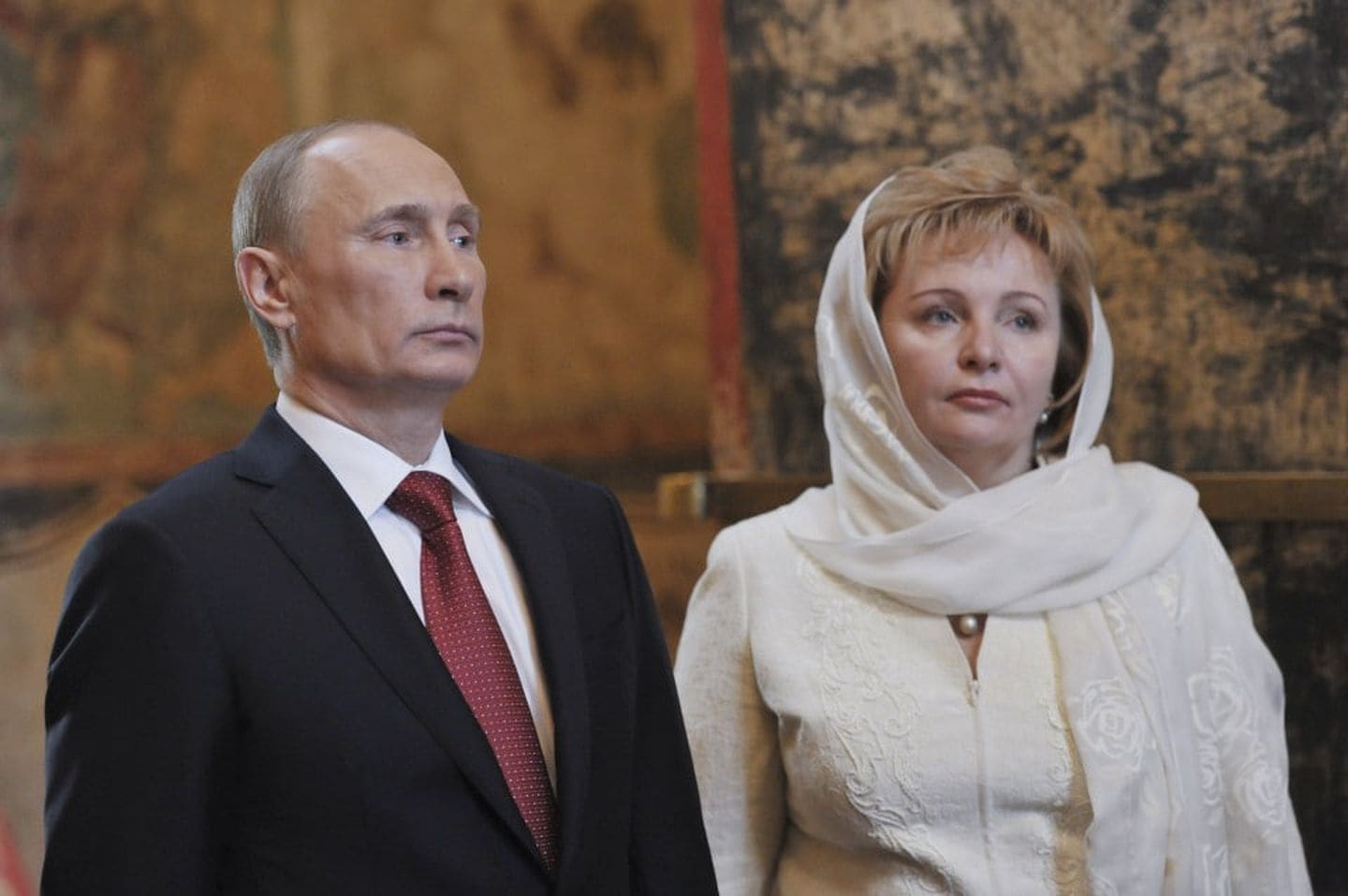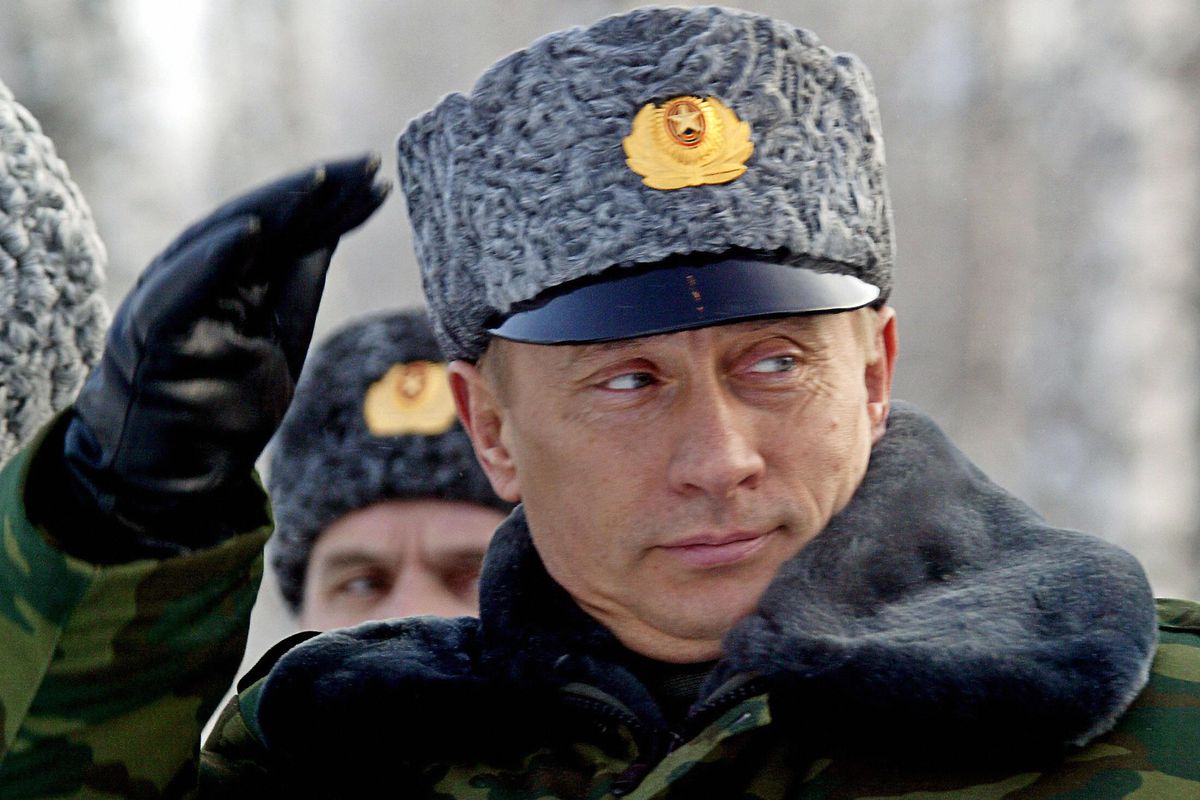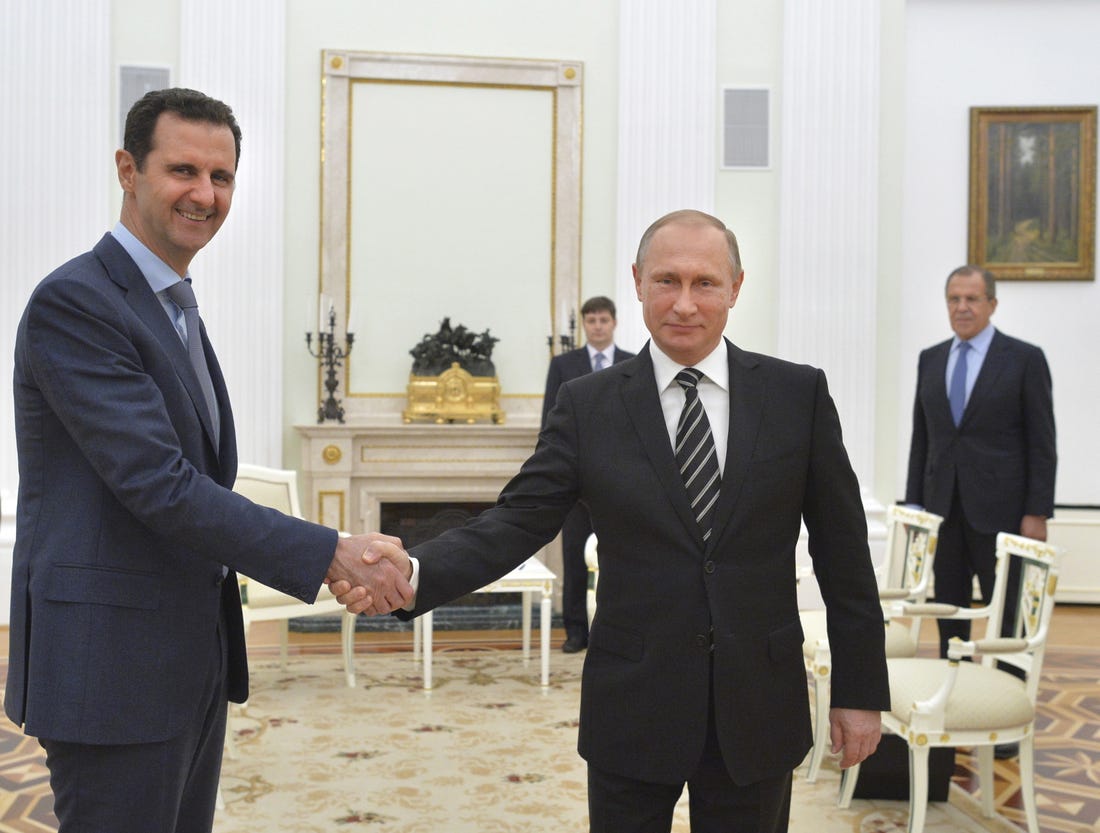Who is Vladimir Putin?

A few minutes every morning is all you need.
Stay up to date on the world's Headlines and Human Stories. It's fun, it's factual, it's fluff-free.
Russian President Vladimir Putin has been called both “fiercely patriotic” and “the world’s favorite dictator.”
Having led Russia in some capacity for two decades, Putin is a leader who inspires admiration in his loyalists and fear and hatred in the opposition.
Putin’s path to power included more than a decade spent working for the secret police in the Soviet Union (USSR) prior to its fall in 1991. Putin quickly rose through the ranks of the Russia that reemerged, becoming the nation’s president in 2000. Though he has maintained broad popularity in the country, his time in power has been marred by international and domestic conflicts.
The early life of Vladimir Putin

Vladimir Vladimirovich Putin was born on October 7, 1952, in the Soviet city of Leningrad, which is now St. Petersburg, Russia. His father, Vladimir Spiridonovich Putin, served in the Soviet Navy, while his mother, Maria Ivanovna Shelomova, worked in a factory. It is accepted family history that his maternal grandfather was a cook for the Soviet dictator, Josef Stalin.
In an interview with NPR, Putin discussed taking up a Russian form of martial arts known as sambo at the age of 14. According to his account, Putin subsequently took up judo and, at 18, became a black belt in the form. He also reported an affinity for spycraft at a young age, admiring intelligence officer characters he watched on TV.
Putin studied international law at Leningrad State University, completing his studies in 1975.
Straight out of university, Putin began working for the Komitet Gosudarstvennoy Bezopasnosti (the “Committee for State Security,” also known as the KGB), the Soviet Union’s secret police.
From 1985 to 1990, just prior to the fall of the USSR, Putin was stationed in East Germany.
In 1983, Putin married Lyudmila Aleksandrovna Ocheretnaya, with whom he had two daughters, Yekaterina Putina and Mariya Putina. Putin announced his separation from Lyudmila in 2013 and has since been rumored to be involved with Alina Kabaeva, a former Olympic gymnast.

Putin’s years with the KGB
Putin’s time as an agent of the KGB is largely shrouded in secrecy, as would be expected of such an agency. Nonetheless, based on contemporaneous reports, officially released documents from the current Russian government and Putin’s own words, it is possible to piece together a sense of his role.
Some of Putin’s duties with the KGB involved working on the curation and dissemination of misinformation, a practice he is alleged to still be focused on as president. Despite repeated denials, intelligence communities in the United States and around the world have found evidence that Russia is engaged in multiple disinformation campaigns intended to sow discord in foreign countries.
During his time in Dresden, in what was then East Germany, Putin’s role was to recruit spies to provide information on the West, including on the US and other NATO member nations. His targets purportedly included journalists, professors and scientists. Putin also worked alongside the Stasi, the German secret police, in attempts to recruit potential spies from major tech companies in the West.
In 1990, Putin returned to Leningrad (the city returned to its original, pre-Soviet name of St. Petersburg in 1991). He took a job at the university as a rector. It was later learned that Putin was still an acting KGB agent at this time, responsible for recruiting students to the agency.
Putin’s political rise

In 1990, Putin became an advisor to Leningrad’s mayor, Anatoly Sobchak, a friend from his university days. Thus began a political career that would culminate in Putin becoming president.
In the mayor’s office, Putin was appointed as the head of the Committee for External Relations in 1991. Putin reportedly kept a low domestic profile during his early years in the political sphere, even as he worked to bring overseas businesses to St. Petersburg.
Putin became the deputy mayor of St. Petersburg in 1994, but two years later he moved to Moscow and found a place in the Kremlin under then-President Boris Yeltsin.
In 1998, Yeltsin named him head of the Federal’naya sluzhba bezopasnosti (the “Federal Security Service,” also known as the FSB), the successor agency to the KGB. A year later, Yeltsin appointed Putin as acting prime minister and stated that he wanted Putin to be his successor.
Putin was elected as Russia’s president in 2000 and held the office for two four-year terms. He left the presidency in 2008 and was replaced by Dmitry Medvedev, but there was a question at the time of how much power Putin had actually given up. Putin served as Russia’s prime minister during Medvedev’s one term and then returned to the presidency in 2012.
Shoring up power
Earlier this year, Russia’s Constitutional Court approved a series of constitutional amendments that Putin had submitted. Among the proposed amendments was one banning gay marriage and another that would allow Putin to bypass existing term limits to serve as president until 2036. He is currently set to remain in office until 2024.
The initial proposal led to a mass exodus of the entire Russian government in January 2020. This included the resignation of Medvedev, who was replaced by Mikhail Mishustin, an economist and politician.
The amendments were set to be voted on through a national referendum on April 22. That referendum was postponed indefinitely in response to the coronavirus crisis.
Putin in power
Throughout his multiple terms as president, Putin has enjoyed strong support within Russia, with his approval rating having never dropped below 60%. That is, until polling released May 6 by The Moscow Times found that his approval had dropped to 59%, with a near record-high disapproval of 33%.
The drop in his approval is a result of the national response to the COVID-19 crisis. Many respondents said they approved of their local government’s response to the crisis more than Putin’s.
Putin was seen as initially downplaying the severity of the crisis, but in postponing the constitutional referendum, he struck a more somber tone, saying, “Please don’t think that ‘this doesn’t concern me.’ It concerns everyone.”
Notwithstanding the recent dip, Putin’s 20 years in power have largely been painted as a success due to his shepherding of the economy. From 1999 to 2008, Russia’s gross domestic product (GDP) grew by 94%. That growth has not continued, though, due in part to the global economic crisis in 2008, but also because of unsustainable economic policies.
Putin’s popularity was already in decline in 2019 after his government raised the retirement age for pensions by five years in response to the country’s recent economic struggles.
That a strong public image still exists of Putin in Russia is made evident by the annual publication of calendars depicting images of him. In years past, some of these images have displayed him shirtless and performing feats of strength.
Putin’s international conflicts
When Putin first took office, he spoke of wanting a strong, mutually beneficial relationship with the US. However, the last two decades have frequently found the two world powers at odds on a number of international issues.
One of the most contentious – and deadly – foreign policy conflicts is the civil war in Syria. Russian forces have been supporting President Bashar al-Assad, despite accusations that Assad has committed war crimes against Syrian civilians. Putin has personally met with Assad in both Syria and Russia.

The US and the European Union have both supported Syria’s pro-democracy factions in a war that has resulted in hundreds of thousands of refugees fleeing the country.
In 2014, pro-Russian forces captured Crimea, a region in Ukraine that once belonged to the Soviet Union. The region was annexed by Russia, which has maintained control over it ever since.
The US has placed economic sanctions on Russia in response to the Ukrainian invasion. Sanctions have also been levied in response to cyberattacks that took place during the 2016 election and human rights abuses within Russia.
One specific sanction relates to the torture and killing of Sergei Magnitsky, a lawyer who uncovered a multimillion dollar tax fraud case and was subsequently jailed. Putin has been accused of using his position to enrich himself, even as his country struggles financially.
In 2016, the publication of the Panama Papers revealed Putin’s connection to a fortune worth US$2 billion that was being secretly held in offshore bank accounts.
[article_ad]
Have a tip or story? Get in touch with our reporters here!
Sign up for daily news briefs from The Millennial Source here!




Comments ()